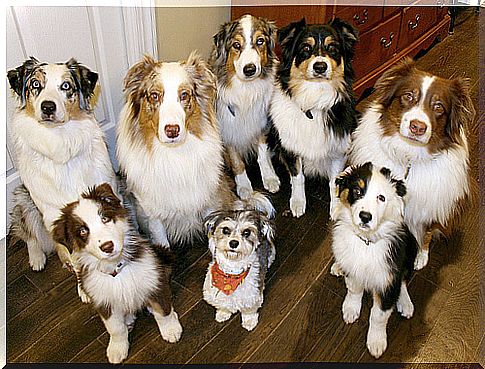Can You Clone Dogs?

The answer to this question sparks a very controversial discussion in our current times. This is because cloning dogs combines scientific aspects with profound ethical questions. In the following, we try to present you the panorama of this discussion from all points of view.
Is it possible to clone dogs?
Scientifically, the answer is yes. Does this mean that the practice is morally validated and socially well regarded? Various researchers have dedicated their entire careers to studying the cloning process in different species of life. It is assumed that the first experiments were made with vegetables, and that today the technique is widely used in food production and reforestation.

Later, the method was adapted to be tested on animals. Recall the globally debated case of Dolly the sheep, for example. Since then, techniques evolved, machinery became more sophisticated, and experiments ranged from laboratory animals to pets.
Although commercial cloning generates a lot of controversy, it is key not to limit our thoughts and visualize unnecessary damage. The goal of cloning and genetic testing does not always involve financial gain.
In fact, cloning can be a very effective method to help preserve various animal and plant species at risk of extinction. Furthermore, genetic manipulation can contribute significantly to the advancement of human and veterinary medicine.
What is commercial cloning in dogs?
Currently, some companies claim to have an advanced technique to clone dogs – according to them – “to perfection”. This inaugurated a new segment in the modern market, called ‘commercial cloning’.
Commercial cloning offers owners the ability to clone their best friends. The procedure makes it possible to obtain one or more puppies with genetic characteristics and phenotype identical to the original animal. Logically, hiring implies a very high cost and does not guarantee the expectation or quality of life of the animals.
It is important to clarify that not all cloning scholars participate or collaborate with this proposal. Many of them do not even agree with the commercial exploration of genetic manipulation.
The ethical problem of dog cloning
The commercialization of cloned dogs has caused much controversy among animal lovers, advocates and professionals. And it is that the idea of genetically manipulating living beings has already been awakening discussions in the moral sphere for some decades.
The first problem associated with cloning dogs for profit is treating animal life as a type of commodity. This rekindles the discussion about many controversial practices that are still in force in the market for the sale of animals.
Surely, we could never think of our own life and organism as a manipulable product or object. So why should it seem justifiable to us to do the same with a dog or other animal?
This confirms an ethical problem that consists of a certain hierarchy of life forms. As if it were possible to establish different values for each type of life, where ours would be superior to the others. Again, it seems that we speak of life more as something appreciable than as a unique experience of existence.
The cloning of pets also presumes the right to decide about life and death. This is one of the most contentious ethical discussions in human history. Is it up to man to make decisions and interfere with the life cycle of the other? A question not easy to answer.
The importance of advancing with bioethics
The ethical basis is fundamental to understanding the limits of human capacity. Without it, our thinking and action lack perspective and grounding, and we run the risk of ignoring the importance of otherness. That is: to respect, consider and value the other as our similar in rights and responsibilities.

We must recognize that bioethics needs to evolve to contemplate current issues related to human and animal life. For example, there is very little bibliography and little is discussed about the real possibility of cloning human beings.
Surely, in the 90s this phenomenon would sound strange and very distant from reality, but today we are talking specifically about cloning dogs and other larger mammals. It is still difficult to find a serious and honest debate that tries to make our society reflect on this problem.
Considering the advances in genetic manipulation, it does not seem too much to say that bioethical studies should focus on the possibility of living with cloned beings on a daily basis. Also in the not too distant future, but it is essential to open a sincere social debate and take into account all the susceptibilities.








